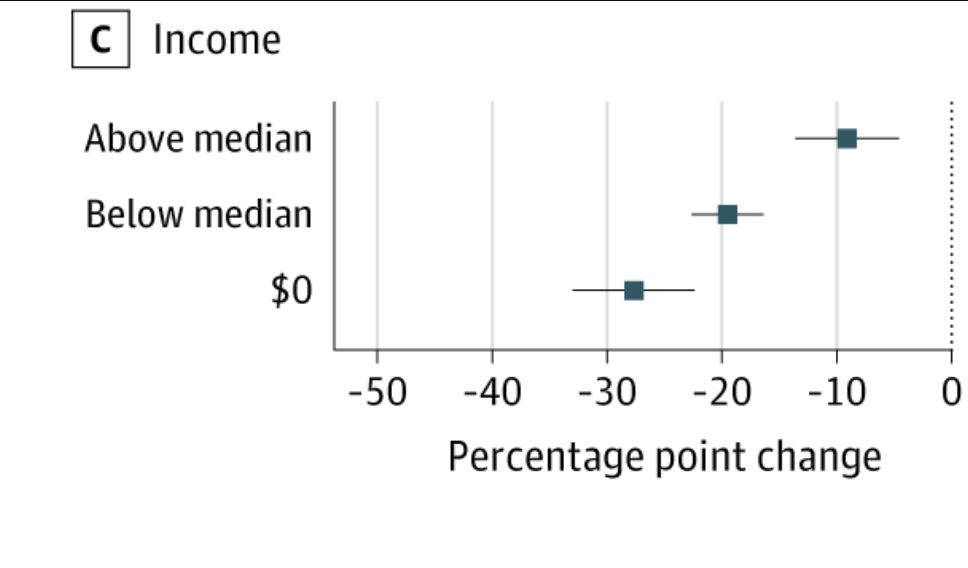Translation — More evidence that not only about whether folks are working, even those with incomes are screened out...
This appears to be about paperwork.
@pamherd.bsky.social @donmoyn.bsky.social
5/

Translation — More evidence that not only about whether folks are working, even those with incomes are screened out...
This appears to be about paperwork.
@pamherd.bsky.social @donmoyn.bsky.social
5/
Disenrollment risk was
≈2× higher for people with diabetes
and
≈5.5× higher for older adults (40-49) with ≥3 chronic conditions
Concerning evidence the sickest and most vulnerable folks are screened out by work requirements.
4/

Disenrollment risk was
≈2× higher for people with diabetes
and
≈5.5× higher for older adults (40-49) with ≥3 chronic conditions
Concerning evidence the sickest and most vulnerable folks are screened out by work requirements.
4/
When CT imposed WR, SNAP coverage fell 25% + Medicaid enrollment was flat.
Translation — People lost nutrition support, not because they earned more, but because of paperwork.
If they were earning more they would be losing Medicaid eligibility.
3/

When CT imposed WR, SNAP coverage fell 25% + Medicaid enrollment was flat.
Translation — People lost nutrition support, not because they earned more, but because of paperwork.
If they were earning more they would be losing Medicaid eligibility.
3/
But it shrinks less in the South—orange in the figure—and particularly Deep South states of LA, AL, MS, GA, SC, TX, and FL
Why?
5/

But it shrinks less in the South—orange in the figure—and particularly Deep South states of LA, AL, MS, GA, SC, TX, and FL
Why?
5/
1️⃣ Concentrated in the Southern United States
2️⃣ Had higher shares of black residents
3️⃣ Had higher shares of people with disabilities
4️⃣ Were more likely to have for-profit hospitals.
4/

1️⃣ Concentrated in the Southern United States
2️⃣ Had higher shares of black residents
3️⃣ Had higher shares of people with disabilities
4️⃣ Were more likely to have for-profit hospitals.
4/
For collections debt, we find:
1️⃣ 30 percent reduction at 65
2️⃣ Two-thirds reduction in the geographic variation due to larger effects in the size where rates were higher
3/

For collections debt, we find:
1️⃣ 30 percent reduction at 65
2️⃣ Two-thirds reduction in the geographic variation due to larger effects in the size where rates were higher
3/
We document a large increase in coverage and reduction in debt collections.
2/


We document a large increase in coverage and reduction in debt collections.
2/
Excited to see my work with @paulgp.com and Maxim Pinkovskiy included with many other great studies
Link to the report: bit.ly/428zURZ
1/


Excited to see my work with @paulgp.com and Maxim Pinkovskiy included with many other great studies
Link to the report: bit.ly/428zURZ
1/

